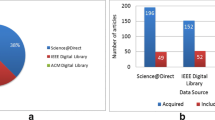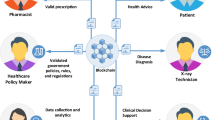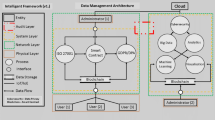Abstract
The integration of blockchain and the Internet of Things (IoT) is seen as having significant potential. In IoT Environments, Blockchain builds a trusted environment for IoT information sharing, where information is immutable and reliable. In particular, when edge devices are connected to a blockchain network, they need to be connected to reliable blockchain peers for synchronizing with valid data. Therefore, blockchain reliability prediction has gained attention owing to its ability to help users find highly reliable blockchain peers. Contextual information has been considered useful in many studies for generating highly personalized blockchain reliability predictions. However, these contextual factors are privacy-sensitive, and therefore disclosing them to third parties is risky. To address this challenge, we propose a privacy-preserving personalized blockchain reliability prediction model through federated learning neural collaborative filtering (FNCF) in IoT. Our model allows users to achieve user privacy protection without passing data to a third party and provides personalized predictions for users. We can also leverage the power of edge computing to enable a fast data processing capability and low latency required by IoT applications. Finally, our model was evaluated using a set of experiments based on real-world datasets. The experimental results show that the proposed model achieves high accuracy, efficiency, and scalability.






Similar content being viewed by others
References
Liang, W., Ji, N.: Privacy challenges of IoT-based blockchain: a systematic review. Clust. Comput. (2021). https://doi.org/10.1007/s10586-021-03260-0
Liang, W., Xiao, L., Zhang, K., Tang, M., He, L., Li, K.: Data fusion approach for collaborative anomaly intrusion detection in blockchain-based systems. IEEE Internet Things J. (2021). https://doi.org/10.1109/JIOT.2021.3053842
Reyna, A., Martín, C., Chen, J., Soler, E., Díaz, M.: On blockchain and its integration with IoT. Challenges and opportunities. Future Gener. Comput. Syst. 88, 173–190 (2018). https://doi.org/10.1016/j.future.2018.05.046
Liang, W., Zhang, D., Lei, X., Tang, M., Li, K., Zomaya, A.: Circuit copyright blockchain: blockchain-based homomorphic encryption for IP circuit protection. IEEE Trans. Emerg. Top. Comput. (2020). https://doi.org/10.1109/TETC.2020.2993032
Wu, Q., He, K., Chen, X.: Personalized federated learning for intelligent IoT applications: a cloud-edge based framework. IEEE Open J. Comput. Soc. 1, 35–44 (2020). https://doi.org/10.1109/OJCS.2020.2993259
Voigt, P., Bussche, A.: The eu general data protection regulation (gdpr). A practical guide, 1st edn. Springer, Cham (2017)
Annas, G., et al.: Hipaa regulations-a new era of medical-record privacy? N. Engl. J. Med. 348(15), 1486–1490 (2003)
Ran, S.: A model for web services discovery with QoS. ACM Sigecom Exch. 4(1), 1–10 (2003). https://doi.org/10.1145/844357.844360
Liang, W., Li, Y., Xu, J., Qin, Z., Li, K.-C.: QoS prediction and adversarial attack protection for distributed services under DLaaS. IEEE Trans. Comput. (2021). https://doi.org/10.1109/TC.2021.3077738
Gao, H., Xu, Y., Yin, Y., Zhang, W., Li, R., Wang, X.: Context-aware QoS prediction with neural collaborative filtering for internet-of-things services. IEEE Internet Things J. 7(5), 4532–4542 (2020). https://doi.org/10.1109/JIOT.2019.2956827
Hornik, K., Stinchcombe, M., White, H.: Multilayer feedforward networks are universal approximators. Neural Netw. 2(5), 359–366 (1989)
Wu, H., Zhang, Z., Luo, J., Yue, K., Hsu, C.: Multiple Attributes QoS prediction via deep neural model with contexts. IEEE Trans. Serv. Comput. (2018). https://doi.org/10.1109/TSC.2018.2859986
Wu, H., Yue, K., Li, B., Zhang, B., Hsu, C.: Collaborative QoS prediction with context-sensitive matrix factorization. Future Gener. Comput. Syst. (2018). https://doi.org/10.1016/j.future.2017.06.020
Li, J., Wang, J., Sun, Q., Zhou, A.: Temporal influences-aware collaborative filtering for QoS-based service recommendation. In: 2017 IEEE International Conference on Services Computing (SCC), pp. 471–474. IEEE (2017). https://doi.org/10.1109/SCC.2017.67
Yin, Y., Yu, F., Xu, Y., Yu, L., Mu, J.: Network location-aware service recommendation with random walk in cyber-physical systems. Sensors 17(9), 2059 (2017). https://doi.org/10.3390/s17092059
Zhou, Q., Wu, H., Yue, K., Hsu, C.: Spatio-temporal context-aware collaborative QoS prediction. Future Gener. Comput. Syst. (2019). https://doi.org/10.1016/j.future.2019.05.024
Chowdhury, R.R., Chattopadhyay, S., Adak, C.: CAHPHF: context-aware hierarchical QoS prediction with hybrid filtering. IEEE Trans. Serv. Comput. (2020). https://doi.org/10.1109/TSC.2020.3041626
Xiong, W., Wu, Z., Li, B., Gu, Q.: A learning approach to QoS prediction via multi-dimensional context. In: 2017 IEEE international conference on web services (ICWS), pp. 164–171. IEEE (2017). https://doi.org/10.1109/ICWS.2017.29
Nagarajan, R., Thirunavukarasu, R.: A service context-aware QoS prediction and recommendation of cloud infrastructure services. Arab. J. Sci. Eng. 45, 2929–2943 (2020). https://doi.org/10.1007/s13369-019-04218-6
Liu, Z., Sheng, Q., Zhang, W., Chu, D., Xu, : X.: Context-aware multi-QoS prediction for services in mobile edge computing. In: 2019 IEEE international conference on services computing (SCC), pp. 72–79. IEEE (2019). https://doi.org/10.1109/SCC.2019.00024
Nguyên, T.T, Xiao, X., Yang, Y., Hui, S., Shin, H., Shin, J.: Collecting and analyzing data from smart device users with local differential privacy. Preprint at arXiv:1606.05053 (2016)
Badsha, S., et al.: Privacy preserving location-aware personalized web service recommendations. IEEE Trans. Serv. Comput. (2018). https://doi.org/10.1109/TSC.2018.2839587
Badsha, S., Yi, X., Khalil, I., Liu, D., Nepal, S., Lam, K.: Privacy preserving user based web service recommendations. IEEEIEEE Access 6, 56647–56657 (2018). https://doi.org/10.1109/ACCESS.2018.2871447
Qi, L., et al.: Privacy-aware data fusion and prediction with spatial-temporal context for smart city industrial environment. IEEE Trans Ind. Inform. 17(6), 4159–4167 (2021). https://doi.org/10.1109/TII.2020.3012157
Chi, X., Yan, C., Wang, H., Rafique, W., Qi, L.: Amplified LSH-based recommender systems with privacy protection. Pract. Exp. Concurr. Comput. (2020). https://doi.org/10.1002/CPE.5681
Zhang, Y., Pan, J., Qi, L., He, Q.: Privacy-preserving quality prediction for edge-based IoT services. Future Gener. Comput. Syst. (2021). https://doi.org/10.1016/j.future.2020.08.014
Liu, S., et al.: Privacy-preserving collaborative web services QoS prediction via differential privacy. In: Chen, L., Jensen, C., Shahabi, C., Yang, X., Lian, X. (eds.) Web and big data. APWeb-WAIM 2017. Lecture notes in computer science, vol. 10366. Springer, Cham (2017). https://doi.org/10.1007/978-3-319-63579-8_16
Zheng, P., Zheng, Z., Chen, L.: Selecting Reliable Blockchain Peers via Hybrid Blockchain Reliability Prediction, arXiv preprint arXiv:1910.14614 (2019)
Xu, J., Zhuang, Z., Wang, K., Liang, W.: High-accuracy reliability prediction approach for blockchain services under BaaS. In: Zheng, Z., Dai, H.N., Fu, X., Chen, B. (eds.) Blockchain and trustworthy systems. BlockSys 2020. Communications in computer and information science, vol. 1267. Springer, Singapore (2020)
He, X., Liao, L., Zhang, H., Nie, L., Hu, X., Chua, T.: Neural Collaborative Filtering. In: Proceedings of the 26th international conference on world wide web (WWW ’17). International World Wide Web Conferences Steering Committee, Republic and Canton of Geneva, CHE, pp. 173–182. https://doi.org/10.1145/3038912.3052569
Sun, T., Shao, Y., Li, X., Liu, P., Yan, H., Qiu, X., & Huang, X.: (2020). Learning sparse sharing architectures for multiple tasks. Proc AAAI Conf Artif Intell. 34(05), 8936–8943 (2020). https://doi.org/10.1609/aaai.v34i05.6424
Shao, L., Zhang, J., Wei, Y., Zhao, J., Xie, B., Mei, H.: Personalized QoS prediction for web services via collaborative filtering. In: Proceedings of the IEEE international conference on web services (ICWS), pp. 439–446. IEEE (2007)
Sarwar, B.M., Karypis, G., Konstan, J.A., Riedl, J.: Item-basedcollaborative filtering recommendation algorithms. In: Proceedings of the10th international world wide web conference (WWW), pp. 285–295 (2001)
Zheng, Z., Ma, H., Lyu, M.R., King, I.: QoS-aware web service recommendation by collaborative filtering. IEEE Trans. Serv. Comput. 4(2), 140–152 (2011)
Acknowledgements
This research was financially supported by the National Natural Science Foundation of China (No.61702318), 2020 Li Ka Shing Foundation Cross-Disciplinary Research Grant (No.2020LKSFG08D), the Shantou University Scientific Research Start-up Fund Project (No.NTF18024), and in part by 2019 Guangdong province special fund for science and technology (“major special projects + task list”) project (No. 2019ST043).
Author information
Authors and Affiliations
Corresponding author
Additional information
Publisher's Note
Springer Nature remains neutral with regard to jurisdictional claims in published maps and institutional affiliations.
Rights and permissions
About this article
Cite this article
Xu, J., Lin, J., Liang, W. et al. Privacy preserving personalized blockchain reliability prediction via federated learning in IoT environments. Cluster Comput 25, 2515–2526 (2022). https://doi.org/10.1007/s10586-021-03399-w
Received:
Revised:
Accepted:
Published:
Issue Date:
DOI: https://doi.org/10.1007/s10586-021-03399-w




